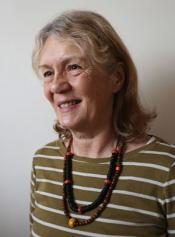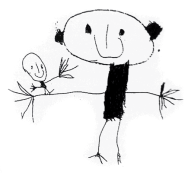Alexander Technique
Gentian Rahtz BA (Hons) M.Ed, LCSP (Phys) S.T.A.T. CERT

Gentian Rahtz
In 1986 I had the good fortune to discover a quite exceptional and ground-breaking Alexander Teacher, Don Burton, who ran Fellside Alexander Teacher Training School in Kendal, Cumbria. His visionary yet visceral approach to Alexander Technique included a thorough grounding in anatomy and physiology. I qualified from his three year full-time training in1990 but continue to be grateful to this teacher who so inspired his students.
I am now a senior Alexander teacher and work at home in Cumberland Road, East Oxford, OX4 2DA.There is easy parking!
My fees are £50 an hour - £55 for the first session - ( concessions available)
......................................................................................
I have recently written a book - Gentian Rahtz - The Alexander Technique - Seeing with Fresh Eyes - a personal perspective. It is available on Amazon.
Alexander Technique
Alexander work is a fundamental body/mind education in awareness of how we move and breathe and find regular moments of stillness in everyday life. It improves “body sense" (kinaesthesia) and gives a pleasurable feeling of wellbeing, of being both more supported and more relaxed. It can also be a training in mindfulness, a heightened ability to be in the present moment.
This re-education of the nervous system and support reflexes can seem more like therapy at first but offers effective and long term help with a surprisingly wide range of mind/body concerns. A course of sessions is needed. [read more]
Mindfulness Meditation
Mindfulness is a very ancient practice which is now being taught in a wide number of secular contexts. Courses such as Mindfulness Based Cognitive Therapy or Mindfulness Based Stress Reduction put a central emphasis on Meditation.
The relationship between the mind and body is so fundamental that many meditation practices start with paying attention to physical sensations, to the senses. This helps us to notice what is happening in the present rather than the past or future. Listening, seeing, hearing, smelling, tasting, balancing, feeling bodily sensations including breathing, can only actually be experienced in the present although we can also imagine or have memories of them. [read more]

